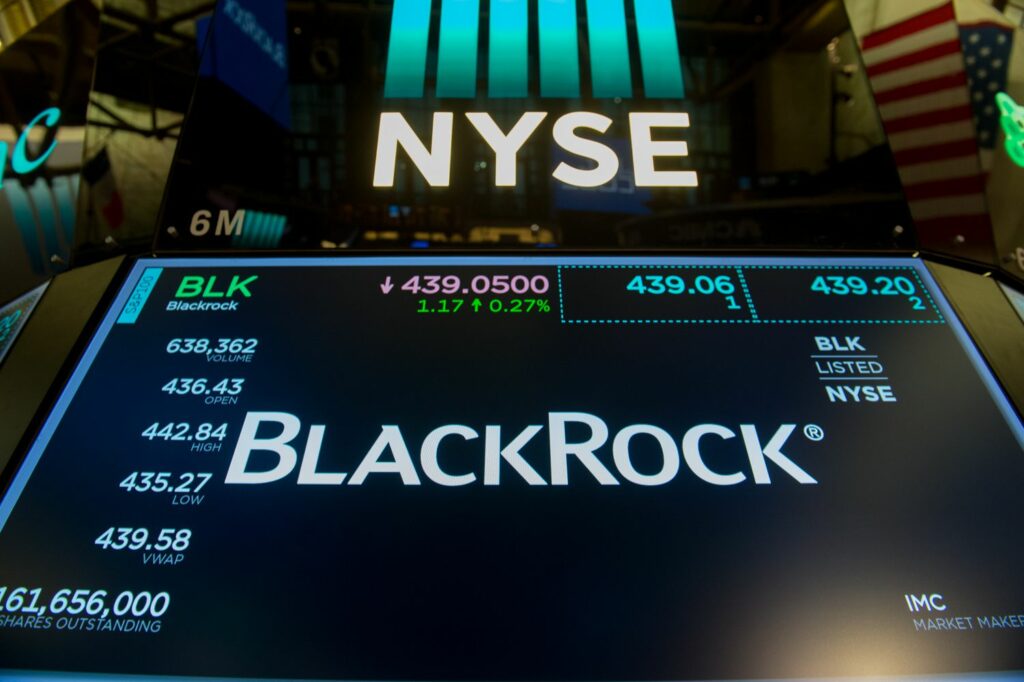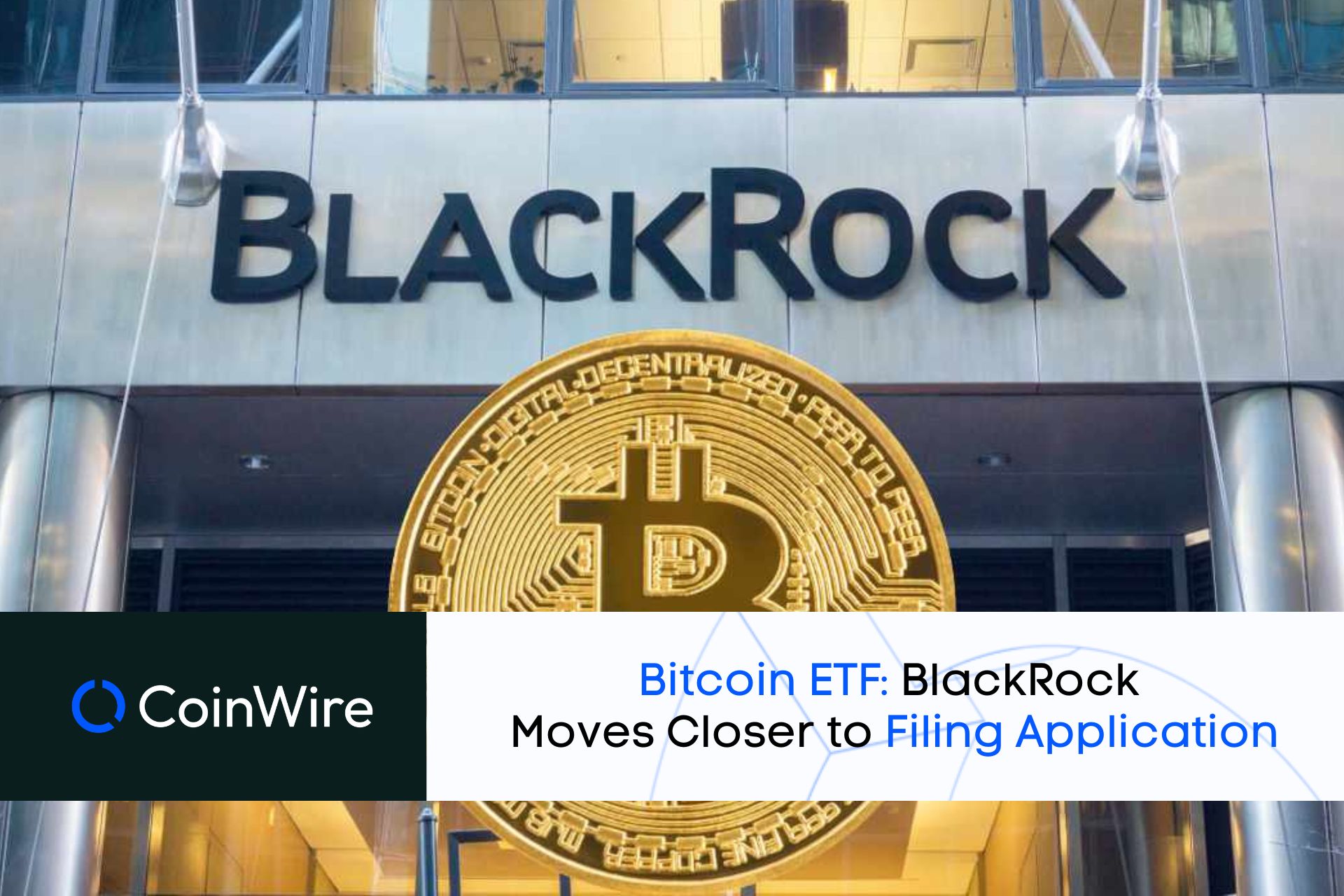According to a source familiar with the matter, BlackRock, the world’s largest asset manager ($9 trillion), is reportedly on the verge of submitting an application for a Bitcoin ETF. The company plans to leverage Coinbase Custody, a digital asset storage solution, for the ETF and will rely on Coinbase‘s spot market data for pricing.
While BlackRock has not yet commented on the development, this move demonstrates the growing interest of institutional players in offering regulated investment products for cryptocurrencies.
What is Bitcoin ETF?
A Bitcoin ETF, or Bitcoin Exchange-Traded Fund, is a type of exchange-traded fund that is designed to track the price movements of Bitcoin, the world’s most well-known cryptocurrency. Instead of directly owning and holding Bitcoin, investors can buy shares of a Bitcoin ETF, which represent ownership in the fund and provide exposure to Bitcoin‘s price performance.

By investing in the ETF, investors gain exposure to Bitcoin’s price movements without directly owning the cryptocurrency. If the price of Bitcoin rises, the value of the ETF shares would increase as well. Investors can then sell their ETF shares at a higher price, realizing a profit.
Potential Profit from Bitcoin ETF Investment:
- Investor Buys Bitcoin ETF Shares: Assume that an investor believes the price of Bitcoin will increase and decides to invest in a Bitcoin ETF. They purchase a certain number of ETF shares at the current market price.
- Bitcoin Price Appreciates: If the price of Bitcoin rises over the holding period, the value of the Bitcoin ETF shares should also increase. The ETF is designed to track the price movements of Bitcoin, so as Bitcoin’s price appreciates, the ETF’s net asset value (NAV) per share should reflect those gains.
- Selling ETF Shares: When investors decide to sell their ETF shares, they can do so on a stock exchange at the prevailing market price. Suppose the price of Bitcoin has indeed increased during the holding period. In that case, the investor can potentially sell their ETF shares higher than their initial purchase price, thereby realizing a profit.
- Capital Gains: The profit made from selling the ETF shares at a higher price than the purchase price would represent a capital gain for the investor. This profit would be subject to capital gains tax regulations in their jurisdiction.
What is BlackRock?
BlackRock, Inc. is a global investment company headquartered in New York City. It is the world’s largest asset manager, with over $8.59 trillion in assets under management. The company operates globally, serving clients in 100 countries through its 70 offices. BlackRock is known for its iShares exchange-traded funds and is considered one of the leading index fund managers.

Its Aladdin software tracks investment portfolios, and its BlackRock Solutions division offers financial risk management services. While BlackRock has positioned itself as a leader in environmental, social, and corporate governance (ESG), it has faced criticism for its investments in fossil fuels and the arms industry. It has also been scrutinized for its efforts to address climate change, promote gender diversity, and its ties to the Federal Reserve during the COVID-19 pandemic.
BlackRock’s Approach
BlackRock’s decision to enter the Bitcoin ETF arena signifies the company’s recognition of the increasing demand for exposure to digital assets among institutional investors. By using Coinbase Custody, a trusted offline storage solution, BlackRock aims to address concerns related to the security and safekeeping of Bitcoin. Including Coinbase’s spot market data for pricing further emphasizes the company’s commitment to transparency and accurate valuation.

It remains unclear whether BlackRock’s Bitcoin ETF will be based on spot or futures contracts. The U.S. Securities and Exchange Commission (SEC), which oversees ETFs in the country, has rejected all applications for spot Bitcoin ETFs while approving several Bitcoin futures ETFs for trading. As the regulatory environment evolves, the launch of a Bitcoin ETF backed by an industry giant like BlackRock could pave the way for further institutional adoption of cryptocurrencies.
Coinbase’s Involvement

Coinbase, one of the leading cryptocurrency exchanges, has been actively collaborating with BlackRock to facilitate direct crypto investments for institutional investors since mid-2022. Its involvement in providing spot market data for BlackRock’s ETF reinforces Coinbase’s position as a trusted partner for institutional-grade cryptocurrency services. However, Coinbase declined to comment on its collaboration with BlackRock for the Bitcoin ETF.
Cryptocurrency Industry Challenges
The potential filing of a Bitcoin ETF by BlackRock comes at a time when the cryptocurrency industry faces increased scrutiny from regulators. Recent lawsuits filed by the SEC against major exchanges, including Coinbase and Binance, have raised concerns about potential violations of securities laws. Despite these challenges, the demand for regulated investment vehicles, such as ETFs, highlights the industry’s growing maturity and its ability to adapt to regulatory requirements.
Conclusion
BlackRock’s reported move to file an application for a Bitcoin ETF represents a significant step toward bridging the gap between traditional finance and the world of cryptocurrencies. By utilizing Coinbase Custody and spot market data from Coinbase, BlackRock aims to provide institutional investors with a secure and regulated avenue for accessing Bitcoin.
As the regulatory landscape continues to evolve, the launch of a Bitcoin ETF by a global asset management giant like BlackRock could have far-reaching implications for the wider adoption of cryptocurrencies in traditional investment portfolios.







